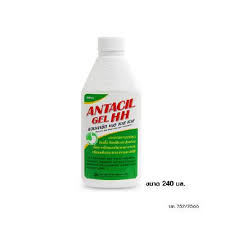Thailand – The "Paradise" of Traveler’s Tummy Troubles

For many, Thailand is the ultimate paradise: endless beaches, exotic flavors, friendly locals, and unforgettable experiences. However, among seasoned travelers, there’s a “well-known secret”: during the first few days or weeks, many visitors experience digestive issues. That’s why Thailand has jokingly earned the nickname "diarrhea paradise." The heat, unfamiliar ingredients, and different hygiene standards can easily lead to a few unpleasant days.
Street Food Meets Tropical Climate
Thailand’s colorful cuisine – from fiery curries to mouthwatering street food – is simply irresistible. Food-loving travelers are quick to dive into the world of new and unfamiliar flavors. But the hot, humid climate is the perfect breeding ground for bacteria and viruses. Add to that some hygiene differences – tap water, raw food, even ice cubes – and it becomes clear how these tummy issues start.
Traveler’s diarrhea is usually a mild, self-limiting condition, but it can ruin precious vacation time. Your immune system suddenly faces a new environment and unfamiliar microbes, and sometimes it hits the “panic button,” triggering symptoms like diarrhea to eliminate invaders. While this is often just a natural bodily reaction, in some cases contaminated food – especially from less hygienic street vendors – can cause real infections like salmonella or other bacterial illnesses.
Should You Avoid Thai Cuisine? Absolutely Not.
None of this means you should avoid culinary adventures or give up on your Thai holiday dreams. With a bit of caution and preparation, you can minimize your risk, and if symptoms do strike, a little knowledge goes a long way in managing the situation.
✅ How to Avoid Traveler’s Diarrhea in Thailand
-
Drink only bottled water: Avoid tap water, especially in rural areas. Be cautious with ice cubes – they’re often made from tap water.
-
Prefer hot, freshly cooked meals: Avoid raw or undercooked meat, seafood, or unpeeled fruits and vegetables.
-
Choose street food wisely: Eat where you see a long line of locals – it usually means the food is fresh and safe. Avoid stalls with questionable hygiene or pre-cooked food sitting out in the heat.
-
Wash your hands: Always wash your hands before eating, or use hand sanitizer if soap and water aren’t available.
-
Peel it yourself: If you eat fruit, peel it yourself to avoid surface contamination. Skip salads unless you’re sure they’ve been washed with clean water.
🚑 What to Do If It Happens Anyway
-
Stay hydrated: Drink plenty of clean water and replenish lost electrolytes with rehydration salts or sports drinks.
-
Eat bland foods: Stick to plain rice, toast, boiled vegetables, bananas, or boiled chicken until symptoms ease.
-
Use basic medications: Activated charcoal, loperamide, or other anti-diarrheal meds can be helpful. If symptoms are severe or persistent, consult a doctor – you may need antibiotics.
-
Try probiotics: They help restore gut flora and can speed up recovery.
-
See a doctor if needed: If diarrhea lasts more than 2–3 days, comes with fever or signs of dehydration, don’t hesitate to visit a local clinic. Thailand’s tourist areas have many modern, reliable medical facilities.
🌴 In Summary
Thailand offers unforgettable experiences and culinary treasures – but your digestive system might need a few days to catch up. With a few simple precautions and proper care, “Thailand, the paradise of diarrhea” can quickly become “Thailand, the paradise of flavor.” Be smart, stay clean, and you’ll be back to enjoying the adventure in no time.
 this product can help ...and you can buy everywhere !
this product can help ...and you can buy everywhere !
